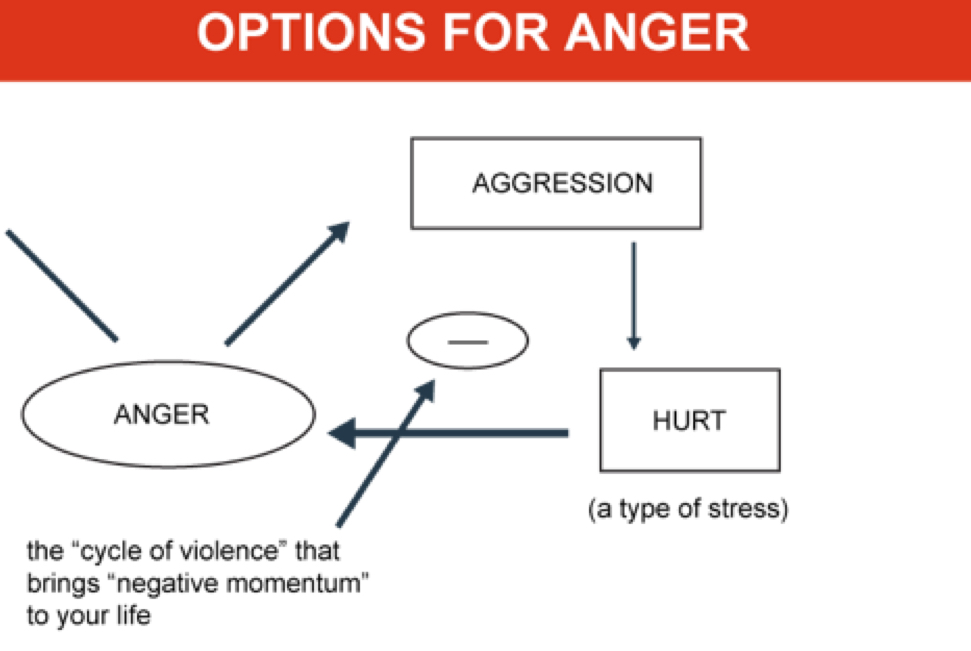Aggression is the destructive, "win/lose" form of anger, applied in action, using the "mammalian brained" pathway. In Romantic Dynamics, it is considered "better" or more promoting of growth than the passivity of depression. However, it is defined as dumping one's anger on another person, or on property (or the self), which does offer a "quick-fix" for eliminating the negative energy of anger.
However, as we know from the laws of thermodynamics, this does not harvest the energy and power of anger for any good purpose. It just wastes it, so that the individual does feel temporarily better. Yet, the sources of the anger in the first place may then continue, spawning new anger, and new aggression, if one does not learn to channel the anger into assertiveness instead.
Assertiveness is "win/win" and constructive, transforming anger into one's needs getting met (which is newly transformed well-being.) Aggression usually causes a backlash from the environment, socially, perhaps legally or financially too. Both are forms of anger in ACTION, which carries with it, the decisions to act.
Our decisions are guided and fed by stores of conscience and intuition that are built over a lifetime of decisions, and so the more decisions you make, the more conscience and intuition you build, for making better, more high character decisions in the future, which lead to more success - a crucial element in successful partnership.
Aggression causes us to fall deeper into anger emotions via the "cycle of violence" - where we dispel our anger by hurting others (hurt is one of the two types of stress), which causes them to lash back in further aggression, hurting us back. And so it is a Faustian deal to use aggression, because the temporary reprieve from anger causes us even more hurt, then more anger, then more aggression both directions - the "cycle of violence" continues. One may then say that aggression is the "Reptilian Brain" mode of expressing anger. It is impulsive and reflexive, a means of guaranteeing temporary survival without us having to think. This also links it over to the Anxiety Map, whose "reptilian brain" option is that of impulsivity, avoidance and addiction - all states of being that have also been associated with aggression.
However, we get a benefit from aggression. The lessons learned from the destructive, "win/lose" interactions with others cause us to gain in conscience (ethics) and intuition (shrewdness), the first, telling us that our actions are wrong and destructive for hurting others, and the latter telling us that our actions and choice of environment tends to be wrongful and destructive back toward US. That we should avoid such environments in the future.
The role of the personal boundary also comes into play when we are addressing destructive decisions, because boundary holes in it allow us to be "blind" to our overreach, invasion of the rights and privacy of others, and in some cases, because of these holes, we may be "unwittingly aggressive" toward others, doing them harm without our knowledge. And so this kind of aggression is highlighted to us when we get feedback from others and the environment that we have done them destructive harm.
Boundary holes are also places that we tend to engage in "suffering," which is to burn energy, time or other resources (like the energy of anger), on things in life that we cannot control (like other people.) As a result, aggression is also defined as a form of suffering, burning our resources trying to make others do what we want, or for the environment to work the way we want, but nevertheless, not bending to our will.
Derivative forms of aggression based on the past (revenge) or the future (jealousy) are also forms of suffering, wishing that we could control people or our environment with just our emotions, alone, rather than the intellectual aspects of character maturity, the opposite of pathological narcissism.


